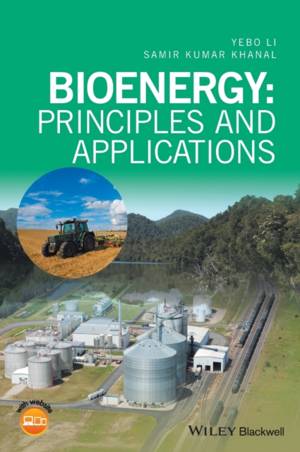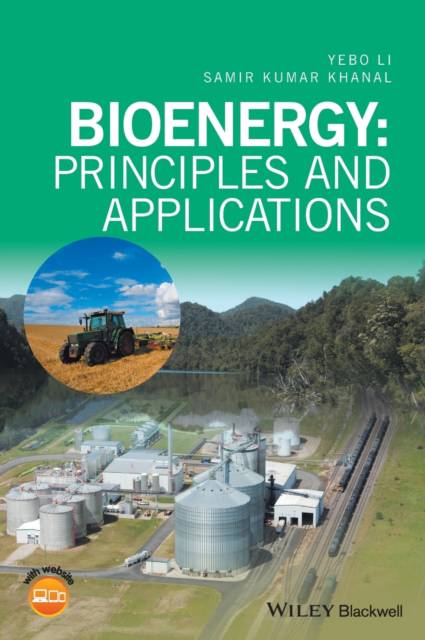
- Retrait gratuit dans votre magasin Club
- 7.000.000 titres dans notre catalogue
- Payer en toute sécurité
- Toujours un magasin près de chez vous
- Retrait gratuit dans votre magasin Club
- 7.000.0000 titres dans notre catalogue
- Payer en toute sécurité
- Toujours un magasin près de chez vous
Description
PRINCIPLES AND APPLICATIONS
BIOENERGY: PRINCIPLES AND APPLICATIONS
With growing concerns over climate change and energy insecurity coupled with dwindling reserves of fossil energy resources, there is a growing search for alternative, renewable energy resources. Energy derived from renewable bioresources such as biomass (energy crops, agri- and forest residues, algae, and biowastes) has received significant attention in recent years. With the growing interest in bioenergy, there has been increasing demand for a broad-ranging, introductory textbook that provides an essential overview of this very subject to students in the field. Bioenergy: Principles and Applications offers an invaluable introduction to both fundamental and applied aspects of bioenergy feedstocks and their processing, as well as lifecycle and techno-economic analyses, and policies as applied to bioenergy.
Bioenergy: Principles and Applications provides readers with foundational information on first-, second-, and third-generation bioenergy, ranging from plant structure, carbohydrate chemistry, mass and energy balance, thermodynamics, and reaction kinetics to feedstock production, logistics, conversion technologies, biorefinery, lifecycle and techno-economic analyses, and government policies. This textbook gives students and professionals an incomparable overview of the rapidly growing field of bioenergy.
Bioenergy: Principles and Applications will be an essential resource for students, engineers, researchers, and industry personnel interested in, and working in, the bioenergy field.
Spécifications
Parties prenantes
- Auteur(s) :
- Editeur:
Contenu
- Nombre de pages :
- 608
- Langue:
- Anglais
Caractéristiques
- EAN:
- 9781118568316
- Date de parution :
- 28-04-17
- Format:
- Livre relié
- Format numérique:
- Genaaid
- Dimensions :
- 180 mm x 257 mm
- Poids :
- 1478 g

Les avis
Nous publions uniquement les avis qui respectent les conditions requises. Consultez nos conditions pour les avis.






